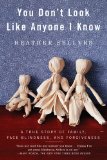Summary | Excerpt | Reviews | Beyond the book | Read-Alikes | Genres & Themes | Author Bio

A Memoir
by William FiennesThe Music Room combines the author's experiences growing up in a castle,
and his memories of his brother who suffered ongoing brain damage
due to epileptic seizures. Interspersed are vignettes relating to the history and science of "the sacred disease" (as epilepsy
was dubbed by the ancient Greeks). Fiennes' prose is both evocative and somewhat
elegiac as he shares his love of both his home and his brother.
Fiennes deftly relates the simple activities of his somewhat rarified childhood
such as learning to ride a bicycle in the Great Hall, the elation of
catching his first pike in the moat, and his onetime fear of a cobwebbed room full of ancient armor. These
passages are great fun and fire the reader's imagination.
He also relates the many ways his parents struggled to support the
property, with strangers frequently traipsing through the house on revenue
raising tours - but even as a child it was clear to him that the tours weren't
just a matter of financial necessity:
The house didn't just belong to us; it was part of the country's heritage, the world's, and our task was to care of it for as long as we were here, and do our best to leave it in good health for future generations. 'We're stewards,' Dad told visitors. He and my mother wanted to look after the house on behalf of everyone who might one day appreciate it, in a month's time or a hundred years.
Some of his more exciting memories are of the weeks when film crews invaded (see the sidebar for a partial list of movies filmed at the house):
We opened a gift shop in the stables and I sold Ian McKellan a postcard; I ran through the arch into the walled Ladies' Garden and saw Jane Seymour in a white Regency gown bend to sniff a rose; … Richard Chamberlain as Prince Charming kneels to fit the twinkling slipper; a stuntman in plumed tricorne hat and breeches leaps off the gatehouse onto a crashpad of cardboard boxes and foam … Oliver Cromwell's warts are Rice Krispies painted brown and glued to his cheek and nose.
Less compelling is the author's description of his relationship with his
brother, Richard. William was eleven years Richard's junior and, as Richard grew older,
and his brain damage became more severe, he had to be institutionalized for increasing periods of time. The sections of The Music Room addressing Richard are more opinions and impressions than
specific events. Also lacking is Fiennes' emotional response to his brother's
illness. Richard could, at times, become quite violent; but Fiennes simply relates the
facts, saying little about his own reactions.
The book's most serious flaw is the author's frequent and inexplicable
shifting of case throughout the narrative, often mid-paragraph. Some readers
will find this technique too distracting to overlook, and because of this I
suggest that you read the excerpt at BookBrowse before investing in the book.
The Music Room lacks the gossipy tone prevalent among so many current
memoirs; it exposes no family scandal or deep emotional scars, and pushes no
political agenda. It is, however, a gentle love-filled memoir which should
appeal to many, especially those with an interest in modern castle life!
About the Author
William Fiennes (born 1970) was educated at Eton College and Oxford University;
while he was at Oxford he was diagnosed with Crohn's disease. His first book, Snow
Geese, was written whilst recuperating. After re-reading Paul Gallico's The
Snow Goose (1941) he was inspired to follow the migrating snow geese on
their annual 3,000 mile journey to the Arctic Circle; the resulting book is part
travelogue and part meditation on the contradictory human impulses to leave and
return, again and again. The book won the Somerset Maugham Award, the
Hawthornden Prize, and was shortlisted for the Samuel Johnson Prize. He
lives in England, and runs a charity called
First Story, which arranges and pays for acclaimed authors to be writers-in-residence in low income schools across the UK.
Incidentally, if the name Fiennes seems familiar to you, it's likely you're
thinking of the actor Ralph Fiennes (Voldemort in the Harry Potter movies) or his brother
Joseph Fiennes
(Shakespeare in Shakespeare in Love), or perhaps the explorer Sir Ranulph
Fiennes. Ralph (pronounced raif) and Joseph are William's third cousins, Ranulph is a second cousin.
![]() This review was originally published in The BookBrowse Review in November 2009, and has been updated for the
October 2010 edition.
Click here to go to this issue.
This review was originally published in The BookBrowse Review in November 2009, and has been updated for the
October 2010 edition.
Click here to go to this issue.

If you liked The Music Room, try these:

by Kurt Eichenwald
Published 2019
The compelling story of an acclaimed journalist and New York Times bestselling author's ongoing struggle with epilepsy—his torturous decision to keep his condition a secret to avoid discrimination, and his ensuing decades-long battle to not only survive, but to thrive.

You Don't Look Like Anyone I Know
by Heather Sellers
Published 2011
An unusual and uncommonly moving family memoir, with a twist that give new meaning to hindsight, insight, and forgiveness.
More Anagrams
Click Here to find out who said this, as well as discovering other famous literary quotes!
Your guide toexceptional books
BookBrowse seeks out and recommends the best in contemporary fiction and nonfiction—books that not only engage and entertain but also deepen our understanding of ourselves and the world around us.